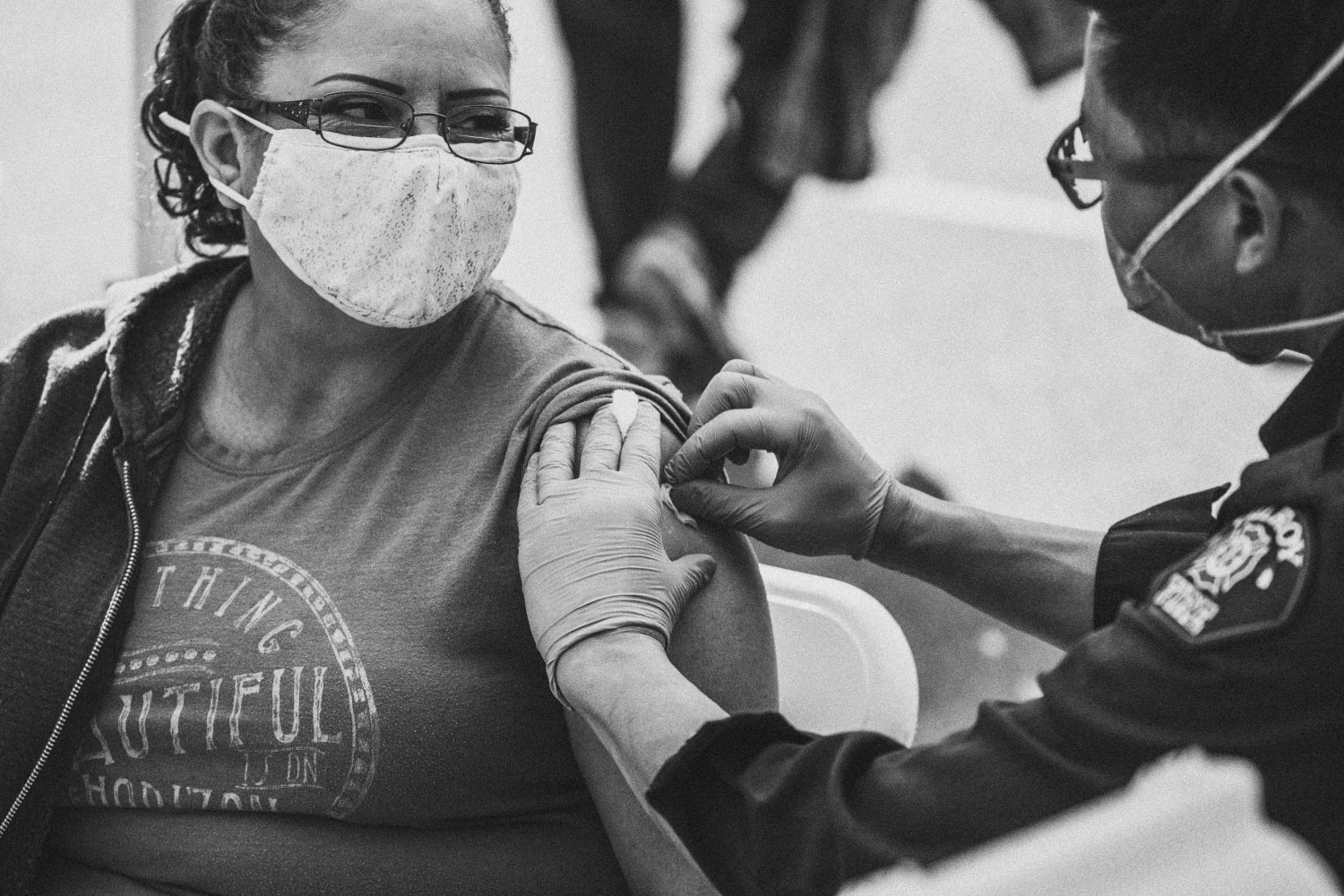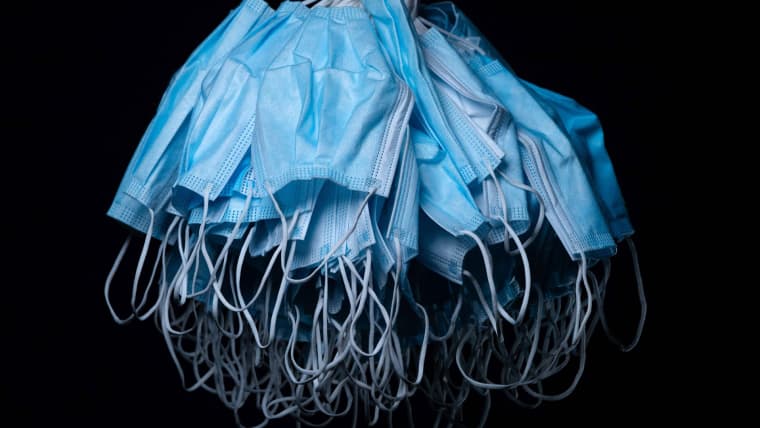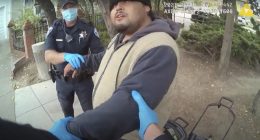We sat outside together to write this article, two fully vaccinated physicians. We showed up wearing masks and looked at each other as we sat down: “Do we take them off now?”
This is the Great Mask Debate.
We kept wearing masks because others wouldn’t know why we were bare-faced, since they have no way to be sure whether those around them have been vaccinated.
As with any debate in the United States at this moment of history, it often takes on impassioned, strident overtones. Public figures are chastised for not taking off their masks post-vaccination over concerns that it dissuades others from getting vaccinated. Vaccinated people who routinely wear masks are themselves vilified as overly anxious or unwilling to trust the latest science.
But when it comes to medical rather than political and social debates, there is a strong argument for wearing masks, even after vaccination. Though the Centers for Disease Control and Prevention is expected to soon announce that Americans who are fully vaccinated don’t need to wear masks inside and outside, we firmly believe that those who would feel more comfortable continuing to wear masks should be supported in choosing to do so.
Firstly, vaccines do not confer 100 percent immunity; vaccines don’t mean that nobody dies from the targeted illness. Differences in the degree of exposure, individual medical problems and viral transformation into variant viruses all affect how much immunity a vaccine provides. Vaccines against influenza have been available since 1945. Each year, 30,000 to 40,000 people die from influenza in the United States. At best, the Covid-19 vaccines reduce the risk of severe illness by 95 percent. Masks fill in the gaps left by the limitations of vaccines.
An additional crack in the vaccine armor is that we don’t know how long our post-vaccine antibodies will be adequate to stave off sickness. Similarly, we don’t know if current or future variants will penetrate our vaccine protection. And while the severity will likely be less when someone develops an infection post-vaccine, the long-term implications of even mild or moderate cases of Covid-19 are unknown: Some early studies have already found symptoms such as fatigue or dyspnea that persist several months after mild Covid infection, and other studies — such as emerging research on Covid-19 and Alzheimer’s disease risk — will certainly reveal more data. So even though a vaccinated person who gets infected is safer, if you can avoid getting it, you probably should.
The second reason for post-vaccination masks is to protect those around you. After vaccination, the risk of spreading SARS-CoV-2, the virus that causes Covid-19, is low, but since infection is possible, transmission may also be. In the short term, certain populations, like young children, are ineligible for vaccination. Others may forgo vaccinations because they are fearful of health care systems and governments. This might include undocumented individuals or people without access to health insurance or those with low confidence in health care systems and governments.
Even vaccinated high-risk patients, such as those who are immunocompromised, may always be in danger. We don’t have a lot of safety data for the Covid-19 vaccines in immunocompromised people, and we don’t know if their weakened immune systems can or will mount a response. So if you won’t wear a mask to protect yourself, do it to protect those around you.
Continuing to wear a mask in the service of others is possibly the most important reason of all. Walking down the street, it’s not apparent who’s vaccinated and who isn’t. As health care workers, we were privileged to be among the first to get the vaccine. But many of our peer-age friends and family weren’t until some time later. Months after vaccination we kept wearing masks because others wouldn’t know why we were bare-faced, since they have no way to be sure whether those around them have been vaccinated.
Additionally, if susceptible community members see people without masks, they might feel compelled to retreat back to the safety of self-quarantine. Or, they may incorrectly assume that they, too, can take off their masks. Wearing a mask keeps the streets and the stores accessible for all. In a time of great division, masking up acknowledges that we are all interconnected.
In medical school we are taught there are no good or bad therapies. Each treatment has its risks and benefits. The upside to masks is clear. And sure, masks also have their downsides. Masks separate us from one another. Masks sometimes make breathing feel difficult. Masks are hot and sweaty and uncomfortable. But the benefits of masks prevail. Masks in open, outdoor spaces will most likely dwindle because Covid-19 transmission there is low, especially when physically distanced. Masks in tight, congested situations might be a good idea for years, if not permanently, because there will always be populations at risk and likely be variants that pose a threat even to the vaccinated.
After more than a year of major uncertainty, we are looking for definitive answers. But that’s not how science informs our behaviors. Science is not absolute; it evolves. Each investigation is a signal, weak or strong, and the collective chorus gives us direction. We continue to learn more about treatments for Covid-19 as well as the benefits of vaccination and masks for prevention. The synergy of multiple treatments frequently provides a result far beyond the sum of the parts. This is the case in vaccines and masks. Both help us to reduce the spread and the severity of this pandemic — together they might actually stop it.
Each person felt the immediate, overwhelming burden of Covid-19 in 2020, whether it was having to care for sick patients, home-school our children or say words of farewell to dying family members over a video call. As we navigate the Great Mask Debate, an approach that is rooted in compassionate and thoughtful behavior toward our neighbors and communities will add to our collective recovery. It’s OK to want to keep your mask on a little longer.
Source: | This article originally belongs to Nbcnews.com











